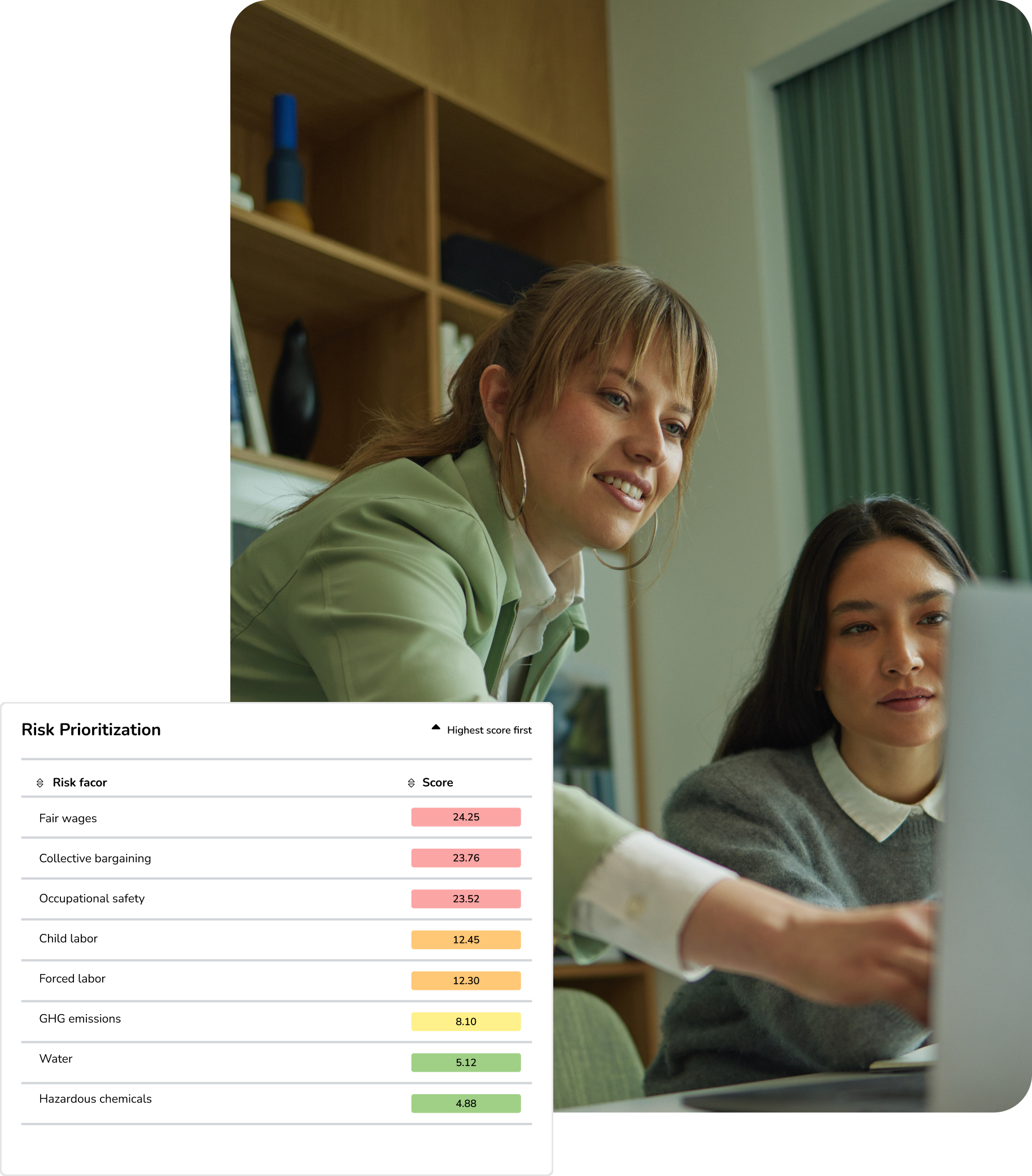
Revolutionize Your Supply Chain Practices with Retraced
The German Supply Chain Due Diligence Act (Lieferkettensorgfaltspflichtengesetz or LkSG) came into force on January 1st, 2023, applying to companies in Germany with more than 3,000 employees, and expanding to those with more than 1,000 employees in 2024.
The first LKSG due diligence and reporting requirement is due by June 1st, 2024, when companies must submit their official compliance report to the government. The German Supply Chain Act places clear and binding due diligence obligations on companies, requiring them to take responsibility for their supply chain impact by identifying, preventing, and mitigating environmental and human rights violations.
By enforcing these due diligence obligations, the Lieferkettensorgfaltspflichtengesetz (LkSG) promotes responsible and ethical business practices throughout global supply chains. It reinforces Germany’s commitment to corporate accountability and introduces significant consequences for non-compliance.
How Retraced Supports Your LKSG Compliance?
Retraced simplifies LKSG compliance by centralizing supply chain data, streamlining risk assessments, and ensuring transparent due diligence and reporting. Our platform helps fashion brands efficiently track suppliers, document due diligence obligations on companies, and stay ahead of evolving regulatory frameworks under the German Supply Chain Due Diligence Act.
With Germany’s stringent Lieferkettensorgfaltspflichtengesetz (LkSG) requirements, Retraced ensures companies can seamlessly meet compliance expectations—minimizing the risk of non-compliance while promoting traceability and responsible sourcing across the supply chain.
Retraced consultants can support sharing best practices and help in the implementation of a thorough risk management system in line with the requirements of the LkSG.
Due to the inherent nature of this legal obligation, we are unable to offer this service on behalf of our clients, as it must be set by the company internally. However, our team of experts can provide guidance on how to establish this step internally and meet LkSG requirements.
Our automated Risk Analysis covers all requirements of the LkSG, helping German companies identify human rights and environmental risks efficiently.
Our Supplier Questionnaire feature enables swift automation, empowering brands to efficiently generate and distribute their Code of Conduct and Policy statements to all suppliers, both direct and indirect, in line with LkSG expectations.
Potential risks can be mitigated by actively working on preventive actions in our CAPA module, supporting LkSG compliance.
Potential risks can be mitigated by actively working on preventive actions in our CAPA module, aligned with LkSG requires provisions.
Grievances can be managed in our CAPA module; however, an effective grievance mechanism—required under LkSG—benefits from collaboration with local organisations in production countries.
With the supply chain mapping & traceability modules, indirect suppliers can be identified and LkSG requirements can be implemented.
BAFA-relevant activities can be documented in the risk analysis and CAPA modules, and reports can be exported for legal audits.

Elevate Your Business’ Due Diligence with Retraced
In summary, companies operating in Germany must establish robust risk management systems to identify and mitigate supply chain risks in compliance with Germany's supply chain due diligence law. It is important for businesses to focus on the full scope of their operations and supply chains, ensuring that both direct and indirect suppliers are considered.
A key part of the implementation of the LkSG involves appointing personnel responsible for managing the company's due diligence efforts, conducting regular risk assessments, and taking preventive and corrective measures. This includes integrating environmental due diligence into everyday processes.
Additionally, grievance mechanisms must be in place for stakeholders to report concerns. All these activities must be documented and reported over time to ensure transparency and ongoing compliance. The use of digital platforms can support efficient tracking and reporting throughout the implementation of the LkSG.
Unlock the Potential of Your Business with Retraced
Explore how our end-to-end solutions can address your unique challenges, backed by our team of experienced professionals.




